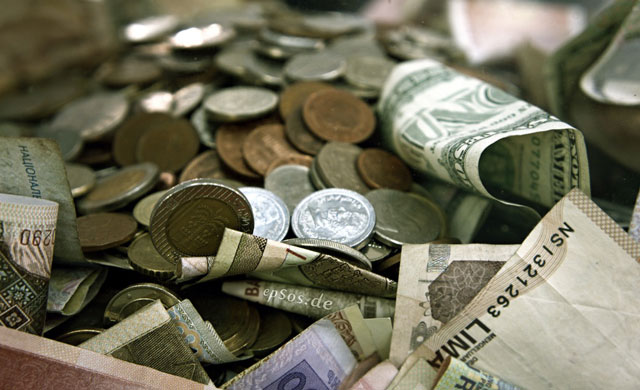The whole world has set their eyes on the events unfolding in the tiny island state of Cyprus, whose Parliament is set to vote on whether to uphold or reject the bailout terms presented by 17-member Euro currency bloc.

At the time I started my writing of this article, the Cypriot Parliament has just started deliberating on the €10 billion (£8.5 billion) package that the troika – the European Central Bank, the European Commission, and the International Monetary Fund – offers to the country exposed to the sovereign debt crisis of its neighbour Greece.
The package has a rider – a first of its kind in the history of bailouts of European nations – of taxing deposits in all of the banks in the country to share the burden of bailing out their own banking system, something that wasn’t done during previous bailouts of other Euro-denominated nations.
Between the Devil and the Deep Blue Sea
Since the proposal was presented to the Cypriot President Nicos Anastasiades on Saturday that triggered a run for cash disbursing machines around the country and prompting the authorities to close banking beyond the local bank holiday (which coincidentally fell on that Monday after the controversial proposal was laid out), the world of business, finance, and economics have reacted either in support or in outrage over the plan.
On the one hand, the move is believed to create a precedent that brings fear to depositors all over the single currency market that any future bailouts may lead to the same measures, causing cash outflows from the Eurozone that will further undermine the already volatile financial condition.
At the other side, the supporters are saying that it is a matter of taking a moral stand of bailing out one’s own economy in the midst of a collapse rather than solely depending on the help from outside.
What makes the measure peculiar is the fact that a large portion of the depositors, whose bank accounts are looming to be taxed at 6.75% and 9.9%, are foreign – a majority of that are Russian in origin, dragging the Russian Government into the picture.
That said, others can’t help but think that the reason why a deposit tax is to be levied was because not doing so in effect puts the entire burden to the Eurozone to bail out Russian depositors.
Blackmail
Cyprus’ former Central Bank Governor Athanasios Orphanides, in an interview with the Bloomberg, called the measure an act of confiscation and blackmail of Cyprus.
Russian President Vladimir Putin has condemned the measure and his government is probably reviewing its plan to extend the terms of the €2.5 billion loan it granted to Cyprus, which also asked for an additional €2 billion from Russia, which seemed to have been left out when the proposal was drafted and presented to the Cypriot Government.
At 5:00 PM GMT, the Cypriot Parliament was reported to have agreed to delay the vote again for the third time as Cyprus’ Finance Minister, who denied the reports he tendered his resignation, is on his way to Moscow to explain personally the situation with its creditor.
Meanwhile, the Euro continues to plunge along with the European stock markets whilst the banks and the local stock market in Cyprus are still closed for business.















